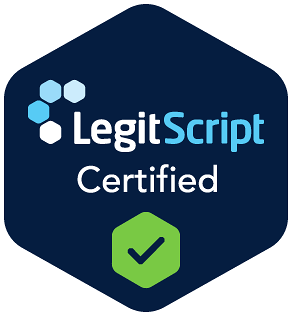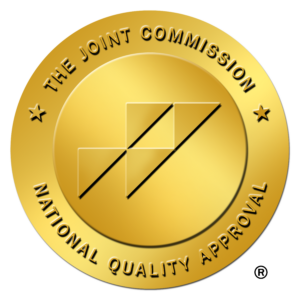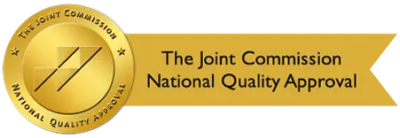Living with ADHD as an Adult Coping Strategies
Living with ADHD as an Adult Coping Strategies
Understanding Adult ADHD: Challenges and Paths to Success
ADHD is often associated with children, but the reality is that many adults live with this lifelong condition. Adult ADHD can manifest differently than in children, and while it presents unique challenges, it doesn’t define an individual or limit their potential.
By understanding the complexities of adult ADHD, implementing effective coping strategies, and drawing inspiration from success stories, adults with ADHD can thrive.
Many adults may not even realize they have ADHD. It’s more than just being “scatterbrained” or “easily distracted”; it’s a complex neurological condition. Symptoms of adult ADHD can include:
- Chronic disorganization
- Difficulty with time management
- Trouble focusing or completing tasks
- Impulsivity and decision-making challenges
- Procrastination
- Forgetfulness and missed deadlines
- Restlessness and feeling constantly “on the go”
These symptoms can impact various aspects of life, including career, relationships, and overall well-being. It’s important to understand that these behaviors are part of the disorder, not character flaws. Untreated ADHD can lead to stress, anxiety, depression, and difficulties in relationships and at work.

Coping Strategies for Adults with ADHD
While there’s no one-size-fits-all approach to managing ADHD, various strategies can make a significant difference. Here are some effective coping mechanisms:
- Creating a Structured Routine
Adults with ADHD often thrive with a clear structure. Setting up daily routines, using calendars, or having checklists can help break tasks down into manageable steps. Technology can be a lifesaver here—apps for task management and time blocking can help individuals stay on track. - Breaking Tasks Into Smaller Steps
Large tasks can feel overwhelming and are often difficult to start. By breaking them into smaller, more manageable pieces, adults with ADHD can feel a sense of accomplishment as they complete each small step, rather than becoming discouraged by the magnitude of the whole project. - Mindfulness and Meditation
Practicing mindfulness can help improve focus and manage the restless feeling that often accompanies ADHD. Meditation and deep breathing exercises can provide a sense of calm and increase attention, making it easier to stay engaged in tasks. - Managing Time Effectively
Time blindness—difficulty perceiving and managing time—can be a significant challenge for adults with ADHD. Using time-tracking tools, setting alarms, and using visual cues like color-coded calendars or planners can help individuals stay aware of deadlines and appointments. - Seeking Therapy and Support
Cognitive Behavioral Therapy (CBT) is an effective treatment for managing ADHD. CBT focuses on helping individuals recognize and change negative thought patterns and behaviors. Group therapy or support groups can also provide a space to share experiences and coping strategies with others facing similar challenges. - Medications
Medication is often a key part of managing ADHD. Stimulant medications like Adderall or Ritalin are commonly prescribed to help increase focus and reduce impulsivity. Non-stimulant options, such as Strattera, are also available. Medication should be considered in conjunction with behavioral therapy for optimal results. - Self-Compassion and Patience
One of the biggest hurdles for adults with ADHD is self-criticism. It’s easy to become frustrated or feel ashamed of the difficulties ADHD can cause. Practicing self-compassion, celebrating small wins, and giving oneself grace can be transformative in the management of ADHD.
The Power of Mindset and Support
Living successfully with ADHD as an adult involves more than just managing symptoms; it also requires adopting a positive mindset and building a strong support system. Here’s why:
- Reframing Challenges: ADHD can present challenges, but it’s essential to reframe them as opportunities for growth and self-discovery. By focusing on strengths and developing coping mechanisms, individuals can navigate these challenges more effectively.
- Building a Support System: A strong support network of family, friends, therapists, or support groups can provide encouragement, understanding, and practical assistance. Sharing experiences and learning from others can be invaluable in managing the condition.
- Embracing Neurodiversity: Recognizing ADHD as a form of neurodiversity can help individuals embrace their unique way of thinking and approaching the world. This can foster a sense of self-acceptance and empowerment.
- Setting Realistic Expectations: It’s important to set achievable goals and acknowledge that progress may not always be linear. Celebrating small victories and learning from setbacks can contribute to a positive self-image and overall well-being.
The Impact of ADHD on Adults: Facts and Statistics
ADHD is not just a childhood condition; it continues to affect many adults. Here are some key statistics:
Prevalence of ADHD in Adults
According to the National Institute of Mental Health, approximately 4.4% of adults in the U.S. have ADHD, which translates to about 10 million people. Yet many go undiagnosed or untreated.
Impact on Career and Work
A study by the American Psychiatric Association found that adults with ADHD are more likely to experience job instability, frequent job changes, and lower educational attainment compared to those without ADHD.
Co-occurring Conditions
Adults with ADHD often have co-occurring mental health conditions such as anxiety, depression, and substance abuse. Research from the National Institutes of Health (NIH) shows that around 50-70% of individuals with ADHD have at least one additional mental health diagnosis.
Moving Forward: Thriving with Adult ADHD
Living with ADHD as an adult can be challenging, but it’s important to remember that it’s not a barrier to success or happiness. By implementing coping strategies, seeking appropriate treatment, and finding inspiration in the stories of others, adults with ADHD can harness their unique strengths and live fulfilling, productive lives. It’s not about “fixing” ADHD but about working with it to build a satisfying and meaningful life. Adults with ADHD can thrive—it’s about knowing how to manage the condition and use the inherent strengths it offers to live a successful and balanced life.







